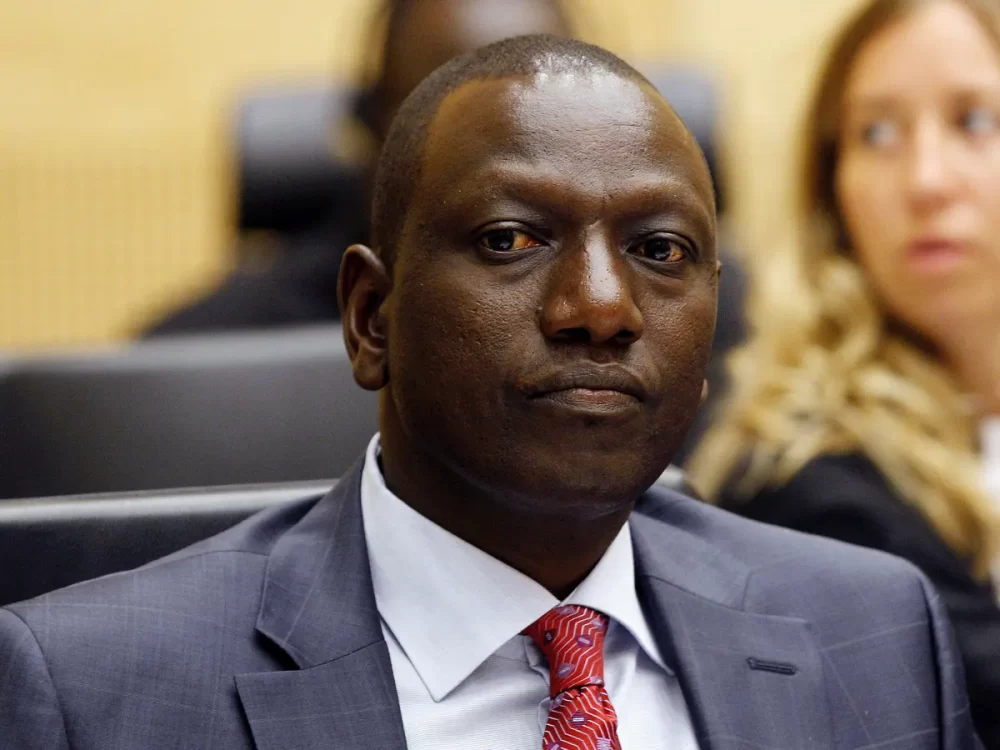By Paul Ejime
Embattled Kenyan President William Ruto has dissolved his cabinet in response to lingering youth-led national anger against bad governance characterised by economic hardship, insensitivity and extravagance by government officials and police brutality.
“Upon reflection, listening keenly to what the people of Kenya have said and after a holistic appraisal of the performance of my Cabinet and its achievements and challenges, I have… decided to dismiss with immediate effect all the Cabinet Secretaries and the Attorney-General from the Cabinet of the Republic of Kenya except the Prime Cabinet Secretary and Cabinet Secretary for Foreign and Diaspora Affairs,” he said in a four-page statement released by State House on Thursday.
He added: “I will immediately engage in extensive consultations across different sectors and political formations, with the aim of setting up a broad-based government that will assist me in accelerating and expediting the necessary, urgent and irreversible, implementation of radical programmes to deal with the burden of debt, raising domestic resources, expanding job opportunities, eliminate wastage and unnecessary duplication of a multiplicity of government agencies and slay the dragon of corruption consequently making the government lean, inexpensive, effective and efficient.”
The public disaffection against Ruto’s government policies came to a head on June 25, when youths stormed the Kenyan Parliament and chased away MPs who assembled to pass a controversial Financial Bill 2024 that sought to impose more taxes on the long-suffering citizens.
The National Human Rights Commission reported at least 39 deaths, hundreds injured and a score of persons missing from the clashes between the protesters and security forces across the country.
After his initial tough stance, President Ruto backed down. He withdrew the controversial bill and promised to cut drains on the public treasury, such as the office of the First Lady.
In Thursday’s statement, the president said: “During this process (of extensive consultations across different sectors and political formations), the operations of government will continue uninterrupted under the guidance of Principal Secretaries and other relevant officials.”
He also pledged “additional measures in due course,” adding: “Recent events that necessitated the withdrawal of the Finance Bill, which will require a review and reorganisation of our budget and fiscal management, have brought us to an inflexion point.”
Continuing, President Ruto said “… I announced last week barring State and public officers from engaging in Harambee, I want to inform the country that the Public Fundraising Appeals Bill is now ready for publication tomorrow. Even with the progress we have made, I am acutely aware that the people of Kenya have high expectations of me and believe that this administration can undertake the most extensive transformation in our nation’s history.”
When Ruto assumed office in 2022 at age 55, leading an opposition party after resigning as deputy president, there were high hopes that a new sheriff with fresh ideas had arrived in the Kenyan divisive political scene.
After his recent trips to the U.S. and Asia, the impression created in official quarters was that Ruto had become a darling of the superpowers. He was quoted as saying the “right things” during meetings with his interlocutors.
To reinforce this notion, Kenya recently dispatched a police contingent to assist in the stabilisation of troubled Haiti, America’s neighbour that has known more crisis than peace since its emergence as the first independent nation of freed black slaves in 1804.
The deal for the police deployment was negotiated between Nairobi and Washington under the aegis of the United Nations.
As is usually the case, this played a huge part in the budget support promised to Kenya by the IMF.
This is despite the well-documented unsavoury legacy of the Bretton Woods institution in most developing countries, hence the uncomplimentary saying: “IMF in a country today, riots tomorrow,” due to the anti-people conditionalities attached to their financial support.
Despite warnings by even former senior officials of the IMF and its cousin, the World Bank, it beggars’ belief that African leaders still fall victim.
Otherwise, why did it take the avoidable death of almost 40 Kenyans and the material losses during the protests for President Ruto to realise that his government had to consult extensively before imposing more hardships on the citizens of his country?
Perhaps, it is a credit to him to have engaged a reverse gear. However, Kenyan youth have made it clear that the citizens can no longer be taken for granted.
The same message should not be lost on Ruto’s colleagues in other African countries, who may want to carry on as if governance is about arbitrariness, impunity, self-service and the looting of state treasury for the benefit of themselves and their families at the expense of the majority.
The responsibility of every government is to improve the well-being of the people; and to protect lives and property in an environment of equal opportunity to all inspective of political affiliation, status, tribe, religion or creed.
The vault face of Kenya’s fifth President, who morphed from a PhD in Botany and Zoology into a tough politician, should be a good case study in government subjugation to people power.
It should also encourage the people to demand accountability from the leadership instead of a lukewarm attitude or support for oppressive leaders.
*Ejime is an Author, Global Affairs Analyst, and Consultant on Peace & Security and Governance Communications
























Leave a comment